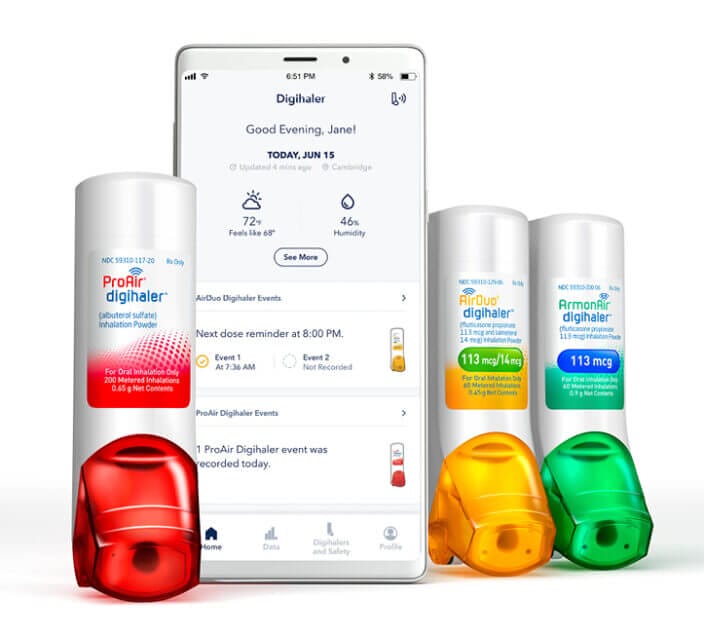 Photo: Getty
Photo: Getty Patients with moderate-to-severe asthma who are struggling with disease control may find relief with the biologic medication called Dupixent (dupilumab).
The medication is given by injection and, following training by a healthcare professional, can be self-administered at home.
“I view this drug as a breakthrough for patients with severe asthma,” says Dr. Michael Wechsler, professor of medicine at National Jewish Health in Denver, who was involved in the clinical trials. “The degree of improvement in lung function is substantial, and so is the reduction of asthma exacerbation.”
The FDA has now approved Dupixent for asthma patients who have high levels of eosinophils, a type of white blood cell that can become overactive and trigger inflammation that blocks the airway, as well as for those dependent on oral corticosteroids.
The medication targets two chemical messengers, IL-4 and IL-13, which play important roles in asthma, allergic disease and atopic dermatitis or eczema. (The biologic was originally approved in 2017 by U.S. and Canadian regulators for moderate-to-severe eczema.)
In the two types of asthma, “by blocking that pathway, it has a significant impact on the underlying disease and you have less inflammation,” says Wechsler. “That will help to open up the airways so you can get improvement in lung function, less mucus and fewer flare-ups of asthma.”
Before the drug was approved for moderate-to-severe asthma in October, more than 2,800 patients over the age of 12 with moderate-to-severe asthma were evaluated in three placebo-controlled trials. Patients on the medication were able to reduce asthma exacerbations significantly, and the therapy also greatly decreased the need for oral steroids, which can have serious long-term side effects.
Wechsler says patients have said they don’t need to use their reliever inhaler as often and they feel like asthma doesn’t affect their lives as nearly as much as it did before. “It’s been huge for them.”
“I recently saw a patient who met the criteria of – high eosinophilic, on corticosteroids and symptomatic,” says Wechsler. “This patient had four exacerbations in the last year and I recommended Dupixent to her.”
Dupixent joins Xolair, the anti-IgE medication, as well as Nucala, Cinqair, Fasenra in the growing marketplace of biologic drugs for asthma.
Get more news from Allergic Living to your inbox.
Read More:
Can Asthma Inhalers Make My Child’s Throat Hurt?
Development of EoE Linked with Eczema, Asthma and Food Allergy





